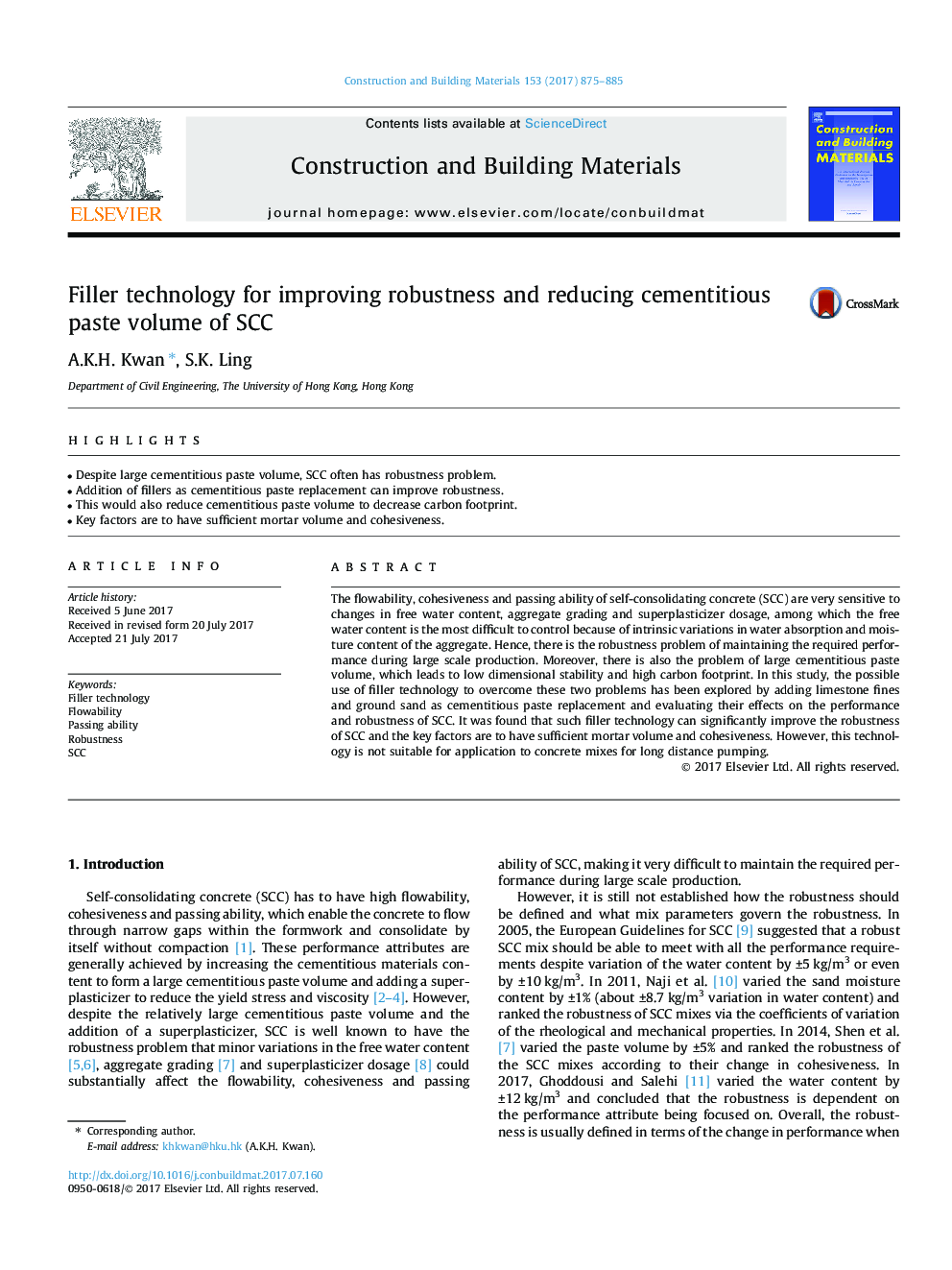| Article ID | Journal | Published Year | Pages | File Type |
|---|---|---|---|---|
| 4913030 | Construction and Building Materials | 2017 | 11 Pages |
Abstract
The flowability, cohesiveness and passing ability of self-consolidating concrete (SCC) are very sensitive to changes in free water content, aggregate grading and superplasticizer dosage, among which the free water content is the most difficult to control because of intrinsic variations in water absorption and moisture content of the aggregate. Hence, there is the robustness problem of maintaining the required performance during large scale production. Moreover, there is also the problem of large cementitious paste volume, which leads to low dimensional stability and high carbon footprint. In this study, the possible use of filler technology to overcome these two problems has been explored by adding limestone fines and ground sand as cementitious paste replacement and evaluating their effects on the performance and robustness of SCC. It was found that such filler technology can significantly improve the robustness of SCC and the key factors are to have sufficient mortar volume and cohesiveness. However, this technology is not suitable for application to concrete mixes for long distance pumping.
Related Topics
Physical Sciences and Engineering
Engineering
Civil and Structural Engineering
Authors
A.K.H. Kwan, S.K. Ling,
